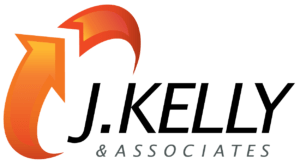Five Essential
Transition Practices
Transitioning an entire book of business between brokerage firms is like moving a village. You aren’t just opening accounts and moving assets. There’s an infrastructure that needs to be built. J. Kelly and Associates shares 5 essential transition practices.
1. Preparation – You are going to need a plan and a way to track that plan. So prepare and supply your team. You may benefit from our free transition evaluation, but make sure you keep these two main questions in-mind when you’re preparing for a transition: (1) Who is leading your transition team? And (2) Is your paperwork physical or cloud-based?
Your transition lead is the mayor of the moving village. How you prepare your mayor for a physical transition versus a digital one is a bit different. Physical transitions require a mini office supply store, with highlighters and stickies for days. You’ll need banker boxes, reams of paper and pools of ink. If you’re going paperless, however, you’ll need to have knowledge of secure cloud-based programs, Docusign, and encrypted communications. You’ll need to make sure the entire team is familiar with the programs you’re going to use. Preparation is how you lay the groundwork for organization and communication.
2. Organization – This seems obvious, but organization is essential. It’s not just having a tidy work space, but every aspect of the transition needs to be documented and centralized. Your book of business should be replicated in a spreadsheet that shows where each client account is in the move.
The key with organization is that all players internal and external on the transition need to understand the system, not just the lead. When the lead is off working with your most important client – or has a weekend off – it’ll be critical for any other team or office member to step in and continue with the seamless support. Also, it’s important to remember that when your transition lead and the transition support team aren’t part of the permanent Financial Advisor team, the transition will be handed over at some point. So organization is essential for the long term success of your transition.
3. Communication – Whether your recruit support team is on location or remote, communication is critical. Daily calls and/or meetings ensure that items don’t fall through the cracks. Questions arise constantly, and the more efficient the communication, the faster your transition will go. One thing you need to avoid is having your team lose precious time waiting for basic answers. We see it all the time, teams waiting on account preferences or clarification on managed programs, and the account opening comes to a halt. So make sure your team communicates their questions well, and the answers are communicated back swiftly (and accurately).
4. In-Office Support – We have great success with remote and in-person support, but that is because we partner with people in the office. Transition teams and the office staff must work together for success. With physical paperwork and mailings it is impossible to have remote support without teaming up with the office. Someone has to sort through mailings and scan documents to share with the team.
If your transition support team is going to be in-person, the in-office support is still essential. They are the bridge that connects the migrating Financial Advisor team from their former offices to becoming a part of your village. So identify your key office resources and stress the importance of working efficiently with both the Financial Advisors and the transition team
5. Time Management – Like communication, time management may seem obvious but it is still essential. Everyone knows time is money. In transitions, time management is money. You want things done fast, but they need to be done correctly or they’ll be done twice. Rely on your organization and communication to use your time efficiently. You can’t bring over a household completely from A-Z without stopping at certain points (often to wait for release of assets from an entity over which you’ll have little control). Don’t lose time waiting on an answer for a tree when your village has a forest. There are always other trees to tend to.
Rome was not built in a day, and neither will your village, but with these 5 essential transition practices it’ll be built to last.
Ready to transition your book of business? Contact J. Kelly and Associates today.
